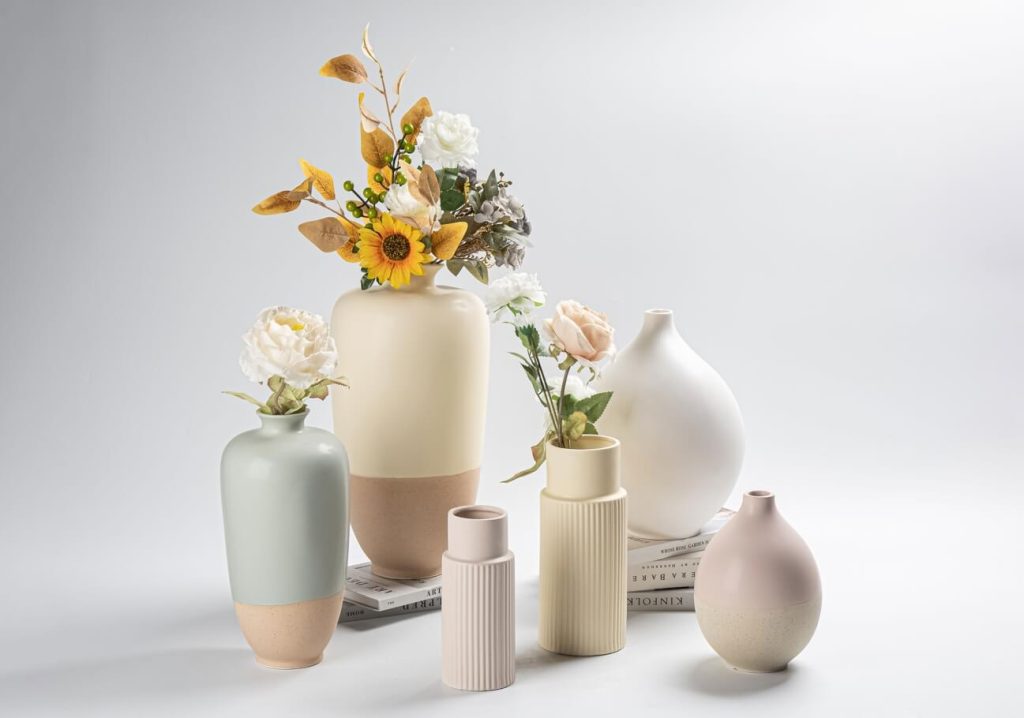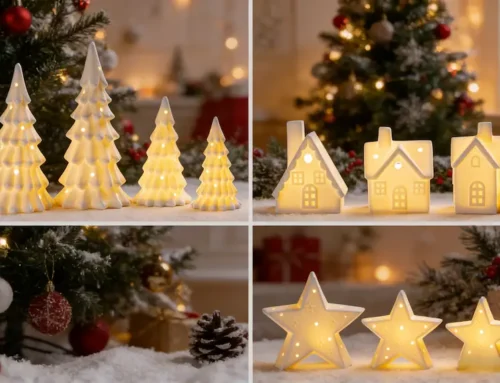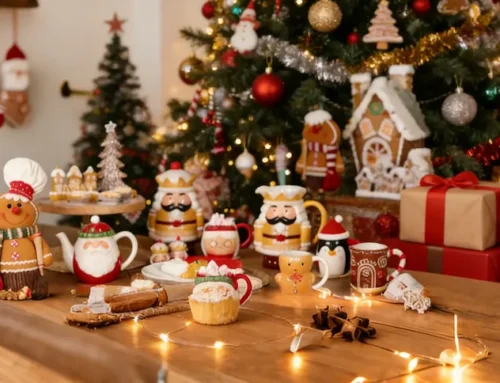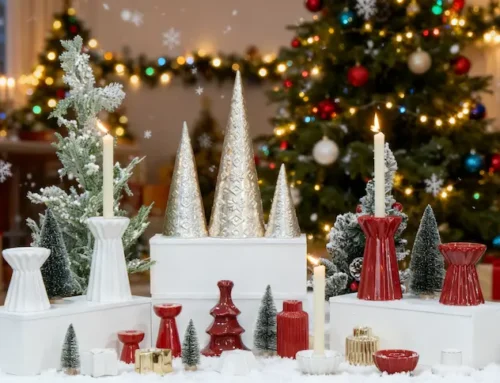Thinking of buying porcelain vases or sourcing from a trusted handmade porcelain vase manufacturer? Whether you’re a home décor lover, a collector, or a retailer looking for elegant ceramic products, porcelain vases remain a timeless choice. Known for their smooth texture, durability, and translucent beauty, these vases add class to any interior.
This comprehensive FAQ guide answers the 20 most common questions about porcelain vases—from how to choose and care for them, to understanding their quality and how to customise them.
???? What Is a Porcelain Vase Made Of?
Porcelain vases are made from a refined mix of kaolin clay, feldspar, and silica, and fired at extremely high temperatures (1,200–1,400°C). This process gives them a hard, glassy surface with signature translucence and durability.
???? How to Identify a Real Porcelain Vase?
Look for translucency—when held against light, real porcelain allows some light to pass through. It also feels smooth, has a fine glossy surface, and may bear a maker’s mark or the word porcelain at the base.
⚖️ Are Porcelain Vases Fragile?
They are more durable than most ceramics but still require care. They resist scratches and wear well but can chip or crack if dropped. Place them away from high-traffic areas.
???? How to Clean a Porcelain Vase?
Use warm water and mild dish soap with a soft cloth. Avoid abrasive materials and strong chemicals. Dry it well after cleaning to prevent water spots.
???? Can You Put Flowers in Porcelain Vases?
Absolutely. Their non-porous surface holds water well, making them ideal for fresh flowers. Just remember to change water frequently and clean them between uses.
????️ Are Porcelain Vases Food-Safe?
Usually, they are not designed for food use. Avoid serving or storing food unless the vase is specifically marked as food-safe.
???? How to Maintain the Beauty of Your Vase?
Keep porcelain vases out of direct sunlight, extreme temperatures, and high-humidity areas. Dust regularly, and consider using display cases for antique or delicate pieces.
???? Do Porcelain Vases Fade?
Yes, especially hand-painted or glazed finishes. UV exposure over time can cause colours to dull. Display them in shaded areas to preserve their vibrant look.
???? What Types of Porcelain Vases Are Available?
From classic Chinese blue-and-white vases to modern minimalist styles, the variety is huge. You’ll find options with gold trim, floral patterns, abstract art, or even textured surfaces.
???? Dishwasher Safe?
Hand-washing is best. Dishwashers can damage delicate designs and finishes, especially gold or hand-painted decorations.
???? Porcelain vs. Ceramic Vases – What’s the Difference?
Porcelain is fired at higher temperatures and made from finer clay, making it more durable and elegant. Regular ceramics are more porous and tend to be heavier with coarser finishes.
????️ Can Broken Porcelain Vases Be Repaired?
Yes. You can repair minor chips at home using ceramic glue. For valuable or antique vases, use a professional restoration service to maintain their value and appearance.
????️ Are Porcelain Vases Suitable for Outdoor Use?
Not really. They may crack under extreme weather. If used outdoors, place them in covered or mild environments and bring them indoors during temperature drops.
???? Are Porcelain Vases Good Gifts?
Yes! They are perfect for weddings, anniversaries, or housewarming gifts. Go the extra mile by choosing a customised design or a vase that fits the recipient’s home style.
???? Best Flowers for Porcelain Vases?
Tall blooms like roses, lilies, or sunflowers look elegant in taller vases, while peonies or tulips suit shorter designs. Choose silk or dried flowers for a long-lasting display.
???? Can I Paint or Decorate My Own Porcelain Vase?
Yes, but use porcelain-safe paint and sealants. Proper firing is needed to ensure long-lasting results. Great for DIY projects or custom gift ideas.
???? How to Store Porcelain Vases?
Wrap each vase in soft cloth or bubble wrap and place them upright in sturdy boxes. Store in a dry, cool place, and avoid stacking them.
???? Why Are Some Porcelain Vases More Expensive?
Factors include:
-
Artisan or brand name
-
Hand-painted details
-
Age and historical value
-
Limited editions or rare designs
-
Material quality
???? How to Tell If It’s Genuine or Imitation Porcelain?
Genuine porcelain is smooth, light-transmitting, and has a ringing tone when tapped. Imitation pieces are heavier, more opaque, and often lack the fine texture.
✍️ Can I Customise a Porcelain Vase?
Yes! Many suppliers like Homey Ceramic offer custom porcelain vases with names, logos, colours, or patterns. These make great business gifts, souvenirs, or private-label products.
???? Ceramic vs. Porcelain: Which Is Better?
Porcelain is ideal for high-end, elegant décor with a smooth, glass-like finish. Ceramic offers more rustic, textured options. Choose based on the intended use and style.
???? Ready to Buy Wholesale Porcelain Vases?
Whether you’re sourcing for a home goods shop, an interior design project, or just looking to buy for personal use, Homey Ceramic is a trusted handmade porcelain vases manufacturer. We provide:
-
Custom designs
-
OEM/ODM service
-
Small or bulk orders
-
Seasonal collections (Christmas, Easter, etc.)
-
Secure international shipping
???? Visit www.homeyceramic.com to explore our catalogue or request a quote today!
✨ Conclusion
Porcelain vases are elegant, timeless, and surprisingly practical. With proper care and the right supplier, you’ll enjoy their beauty for years to come. Use this FAQ guide to make smarter buying and maintenance decisions—and let Homey Ceramic support your journey with high-quality custom porcelain vases.

Here is a guide for you to choose porcelain vases manufacturer 8 Characteristics of A Perfect Custom Porcelain Vases Manufacturer





